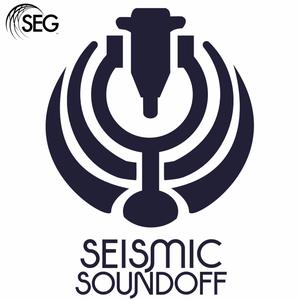"The challenge is to learn and be aware of new techniques and applications and apply them."
Eduardo Corti discusses his Honorary Lecture, "Unconventional Borehole Seismic Techniques."
Unconventional borehole seismic services encompass techniques that go beyond conventional seismic methods. With over eight decades of classical seismic methods shaping our understanding, Eduardo introduces listeners to the newer techniques that have emerged in the past 15 years, which promise greater detail and higher resolution insights into reservoir properties.
While these techniques may be less familiar to geophysicists in exploration and reservoir management, Eduardo emphasizes the importance of local experience and operational involvement to leverage their capabilities fully. He shares his favorites – microseismic and borehole acoustic reflection surveys – and discusses the future of these methods in Latin America, particularly in countries like Bolivia, Argentina, Chile, and Brazil.
Listeners will understand both the advantages and limitations of unconventional seismic techniques. Eduardo will offer his 2024 Latin America Lecture in both Spanish and English.
📋 EPISODE HIGHLIGHTS
> 1:22 - Understanding why seismic techniques are labeled unconventional
> 3:30 - The five unconventional services Eduardo discusses
> 7:35 - The familiarity of geophysicists with these techniques
> 9:20 - Eduardo's favorite unconventional services and their future in Latin America
> 11:45 - Advantages of unconventional techniques for detailed reservoir analysis
> 14:00 - Limitations and challenges of applying unconventional methods
> 16:50 - The evolution of unconventional techniques in the past decade
> 19:25 - Common misunderstandings
> 22:10 - The importance of learning about new techniques and their applications
> 24:20 - Eduardo's journey in geophysics and his anticipation for the future
✍️ EPISODE LINKS
> Register for Eduardo's lecture - https://seg.org/education/lectures/seg-honorary-lecture-3/
>> 21 March - Spanish (11:00 am CST)
>> 16 May - English (11:00 am CST)
> Discover upcoming lectures - https://seg.org/education/lectures/
> Interview transcript - https://drive.google.com/file/d/1EZDPJ3g7rNsXS_ffm4yXBpj_1jAo_J9E/view?usp=sharing
💬GUEST BIO
Eduardo Corti received his Licenciatura en Geofísica (MS in Geophysics) from the National University of La Plata (Argentina) in 1977. He joined YPF S.A. in Buenos Aires (Argentina) in 1979. He became part of the research and development group, focused on new techniques related to surface seismic and borehole seismic. In 1988, he joined Schlumberger as a borehole seismic geophysicist until 2003, when he took another position as a regional geophysicist covering Argentina, Bolivia, Brazil, and Chile. Since leaving Schlumberger, he has been a consultant in surface seismic, processing, and borehole seismic acquisition and processing, providing courses in Argentina, Bolivia, Brazil, Colombia, Mexico, Venezuela, Scotland, France, and Spain.
He is a member of various professional organizations, including the Society on Exploration Geophysicists (SEG), the European Association of Geoscientists and Engineers (EAGE), and the Argentinian Association of Geologists and Geophysicists of Argentina (AAGGP).
SHOW CREDITS
Seismic Soundoff showcases conversations with geoscientists addressing the challenges of energy, water, and climate.
SEG creates these episodes to celebrate and inspire the geophysicists of today and tomorrow.
If you have episode ideas or feedback for the show or want to sponsor a future episode, email the show at
[email protected].
This episode was hosted, edited, and produced by Andrew Geary at TreasureMint. The SEG podcast team is composed of Jennifer Cobb, Kathy Gamble, and Ally McGinnis.
